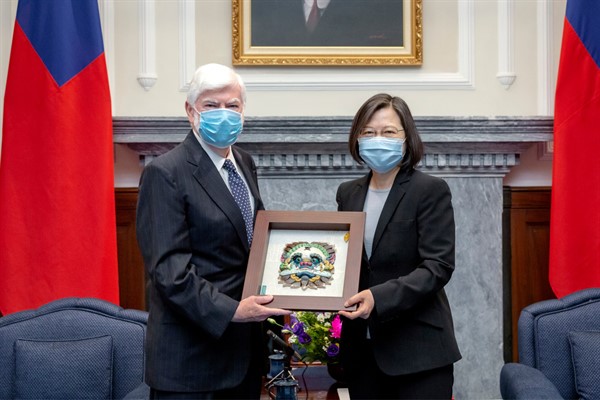Ever since Taiwan’s first direct presidential election in 1996, American and Taiwanese presidential terms have neatly overlapped. The first democratically elected Taiwanese leader, Lee Teng-hui, shared his term with Bill Clinton. Lee’s successor, Chen Shui-bian, served concurrently with George W. Bush, while Ma Ying-jeou’s presidency coincided with Barack Obama’s. Relations in the Lee/Clinton and Chen/Bush years were bumpy, but both sides were content with a low-key relationship.
The pattern broke when American voters rejected Donald Trump’s bid for a second term, making Tsai Ing-wen the first elected Taiwanese president to overlap with two different U.S. presidents, Trump and Joe Biden.
Many Taiwanese observers predicted a rocky transition. Under Trump, Taiwan gained unprecedented levels of recognition and support in Washington, and Trump himself was popular on the self-ruling island. These commentators attributed the progress to Trump’s personal support for Taiwan, as well as his disregard for diplomatic niceties and foreign policy precedent. But they fretted that, given Biden’s service as Obama’s vice president, a Biden foreign policy would be “Obama 2.0.” In particular, they worried he might reverse Trump-era moves that eased interactions between high-level officials in the U.S. and Taiwan, reduce the frequency of arms sales, and dial back Washington’s efforts to help Taiwan participate in international organizations.

